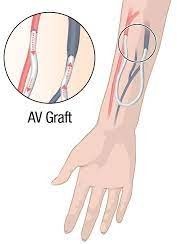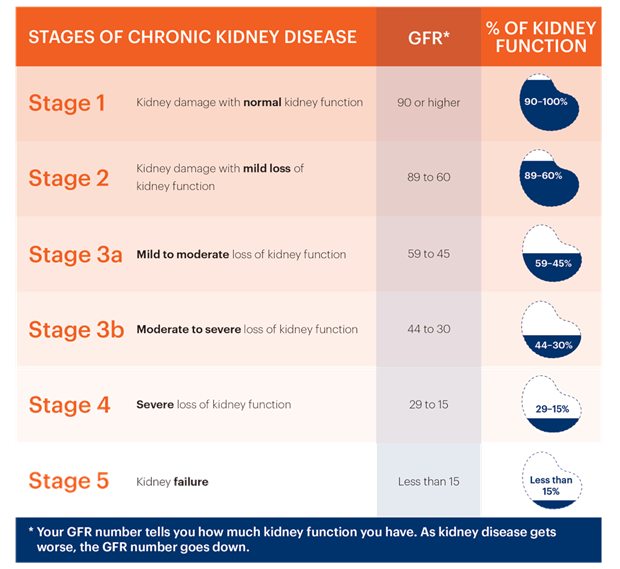After the insertion of an arteriovenous graft (AVG) in the right forearm, a patient complains of pain and coldness of the right fingers. Which action should the nurse take?
Teach the patient about normal AVG function.
Elevate the patient's arm on pillows to above the heart level.
Remind the patient to take a daily low dose aspirin tablet
Report the patient's symptoms to the health care provider.
The Correct Answer is D
Pain and coldness in the fingers following AVG placement can indicate impaired blood flow or compromised circulation to the hand. This may be due to complications such as thrombosis (clot formation), graft malfunction, or decreased arterial perfusion. These symptoms should be taken seriously and promptly communicated to the healthcare provider.
The healthcare provider needs to evaluate the patient's symptoms, assess the AVG, and determine the appropriate course of action. Prompt intervention can help prevent further complications and ensure adequate blood flow to the fingers.

Nursing Test Bank
Naxlex Comprehensive Predictor Exams
Related Questions
Correct Answer is B
Explanation
Opioid tolerance occurs when the body becomes less responsive to the effects of opioids over time. This means that higher doses of the medication are needed to achieve the same level of pain relief that was previously achieved with lower doses. Opioid tolerance is a common phenomenon in long-term opioid therapy and can occur in patients who have been using opioids for an extended period.
Opioid abstinence syndrome, also known as opioid withdrawal, refers to the set of symptoms that occur when a person abruptly stops or reduces their use of opioids after developing physical dependence.
Opioid toxicity refers to the harmful effects that occur when an individual takes an excessive dose of opioids, leading to potentially life-threatening complications. It is characterized by symptoms such as respiratory depression, sedation, pinpoint pupils, and decreased level of consciousness.
Opioid addiction is a complex condition characterized by compulsive drug-seeking behavior, loss of control over opioid use, and continued use despite negative consequences.
Correct Answer is C
Explanation
The glomerular filtration rate is a measure of how effectively the kidneys filter waste and excess fluid from the blood. It is a key indicator of kidney function. CKD is staged based on the GFR, which provides an estimate of the percentage of normal kidney function remaining.
While serum creatinine and urea levels are important markers used to assess kidney function, they are not the sole criteria for staging CKD. The degree of altered mental status and total daily urine output are important clinical observations but are not used for staging CKD.

Whether you are a student looking to ace your exams or a practicing nurse seeking to enhance your expertise , our nursing education contents will empower you with the confidence and competence to make a difference in the lives of patients and become a respected leader in the healthcare field.
Visit Naxlex, invest in your future and unlock endless possibilities with our unparalleled nursing education contents today
Report Wrong Answer on the Current Question
Do you disagree with the answer? If yes, what is your expected answer? Explain.
Kindly be descriptive with the issue you are facing.
